Literary Devices Teaching Resources
Bring literary devices to life this school year with printable worksheets and games, poetry analysis resources, figurative language interactives and so much more!
This teaching resource collection includes curriculum-aligned activities and worksheets designed to help your students learn to use similes and metaphors, bring hyperbole and personification into their writing and explore more literary devices in poetry. Editable resources are available to easily differentiate instruction for individual learners and your state standards.
Has it been a while since you taught ELA, or at least this particular part of the curriculum? We know a quarter of American teachers switch grades every year, and sometimes you could use a quick refresher. Read on for a primer from our teacher team!
What Is a Literary Device? A Kid-Friendly Definition
When we're teaching our students how to analyze different texts, teaching them about literary devices can help them make sense of what the author is trying to say. But what is a literary device?
A literary device is a tool a writer uses to make the text more interesting or engaging for the reader. Authors use these tools to create deeper meaning and add layers of complexity to their writing, whether it's in fiction, poetry or even non-fiction.
6 Literary Device Examples to Share With Students
If we wanted to create a full literary device list, you'd find at least 30 different items on there — everything from juxtaposition to repetition qualifies as a literary device. But when we're talking about the literary devices that are typically introduced in elementary or middle school, the list gets shorter. Here are some examples of the devices most common in this stage:
1. Similes
A simile is a comparison between two things using "like" or "as." For example, if a student writes "I was as quiet as a mouse," that's a simile.
2. Metaphors
A metaphor is similar to a simile (and the two are often confused), but this device compares two things without using "like" or "as." The comparison is more implicit. For example, "The class was a zoo when the teacher was absent" uses metaphor.
3. Personification
Personification is giving human qualities or characteristics to a non-human object. For example, an author might say "The trees waved at me as I went by."
4. Hyperbole
Hyperbole is an exaggeration writers use for emphasis or effect. A good example is "It took forever to drive to Grandma's house."
5. Onomatopoeia
Onomatopoeia is a word that imitates a sound and is popular in comic books and other types of writing. Words like bam and clack are good examples of this device!
6. Alliteration
Alliteration is the repetition of the same sound at the beginning of words in a sentence. The popular tongue twister "Sally sells seashells by the seashore" is an example of alliteration.
- Free Plan
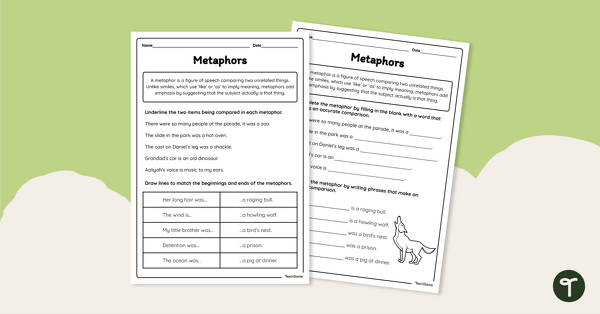
Metaphors Worksheet
Practice identifying and using metaphors with this differentiated metaphors worksheet.
- Free Plan
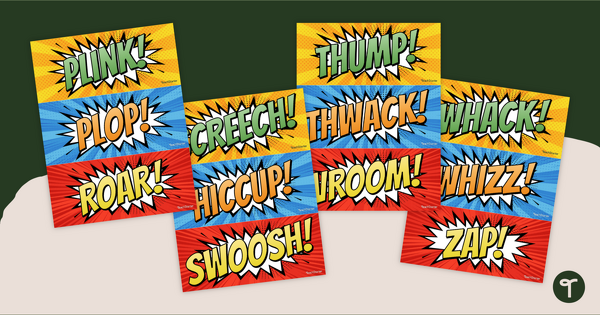
Onomatopoeia Words - Vocabulary Display
Display a fun onomatopoeia word wall in your classroom with printable cards containing onomatopoeia examples.
- Plus Plan
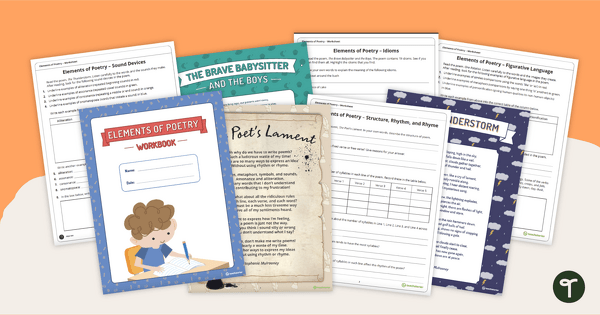
Poetry and Figurative Language Workbook - Poems for Middle School
Print a pack of poems with figurative language worksheets to practice poetry analysis.
- Plus Plan
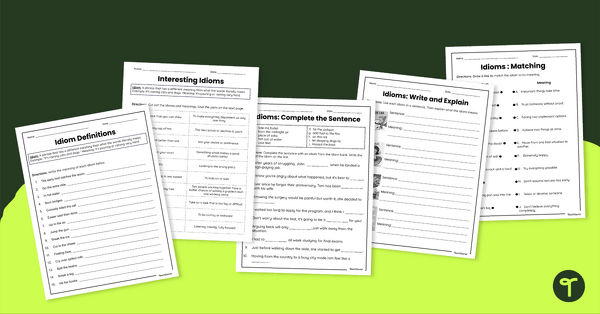
Interesting Idioms Worksheets
Teach figurative language with these idioms worksheets that will introduce your students to many of the most commonly used idioms.
- Plus Plan
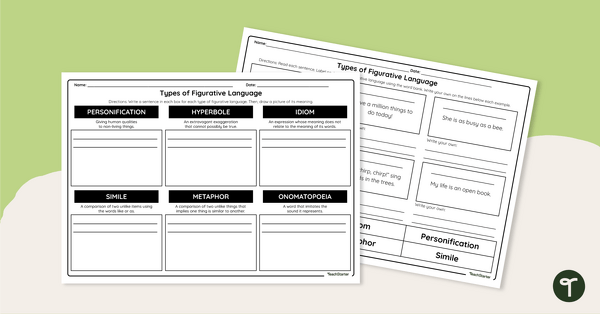
Types of Figurative Language - Worksheet
Practice identifying and creating examples of figurative language with this printable worksheet.
- Plus Plan
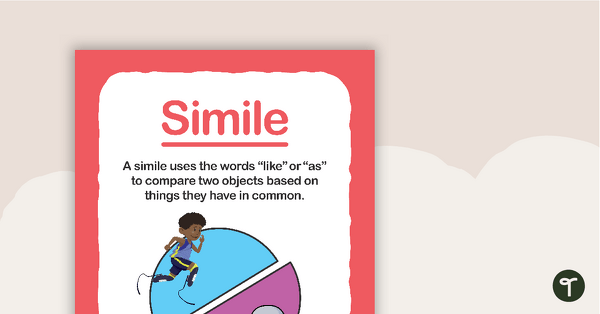
Simile Poster (Primary)
Show your students an example of a simile using this colorful classroom display poster.
- Plus Plan
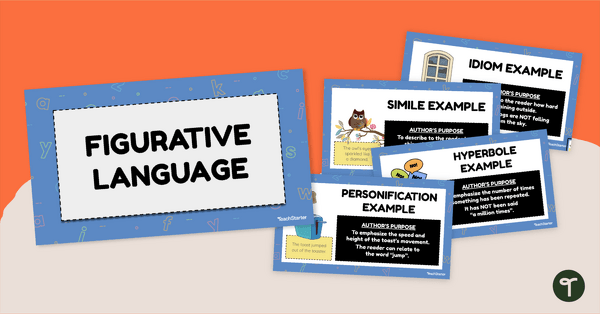
Figurative Languages Lesson - Slide Deck
Teach figurative language using our comprehensive instructional slide deck and accompanying activities.
- Free Plan
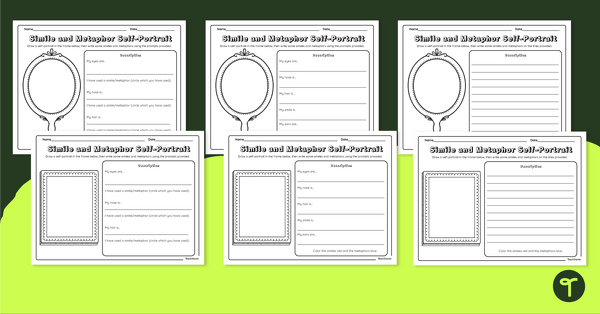
Simile and Metaphor Self-Portrait Worksheet
Teach students about similes and metaphors by asking them to describe... themselves!
- Plus Plan
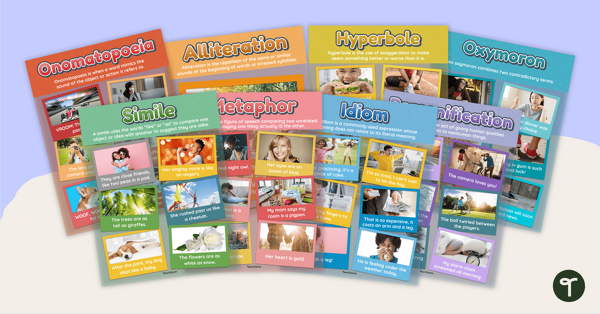
Figurative Language Anchor Charts
Display the types of figurative language with a set of printable figurative language anchor chars.
- Plus Plan
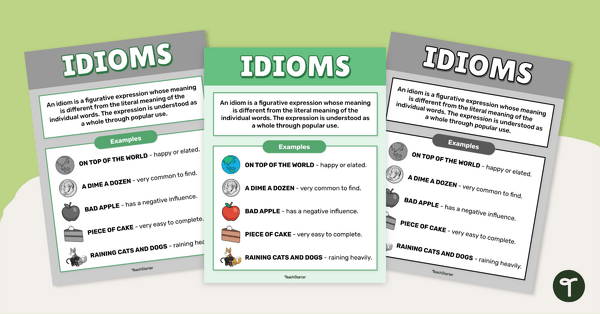
Idioms Poster
Hang this idioms poster in your classroom to give your students a reference for this important piece of figurative language.
- Plus Plan
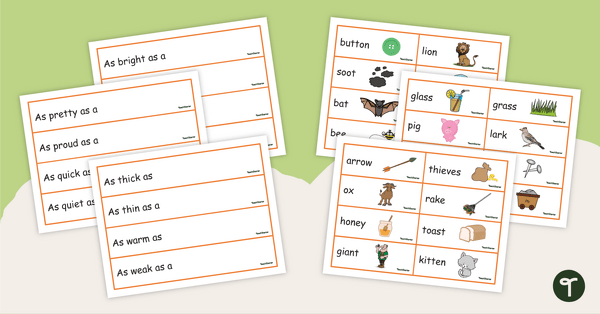
Similes Matching Game
Use this similes game to introduce your students to some of the most common similes used in the English language.
- Plus Plan
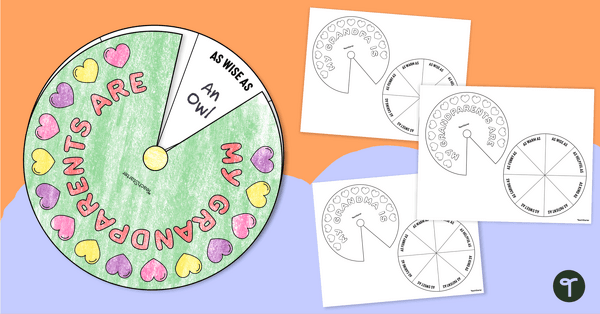
Grandparents' Day Activity - Simile Spinner Craft
Show Grandma and Grandpa how awesome they are with a Grandparents’ Day Simile Spinner!
- Plus Plan
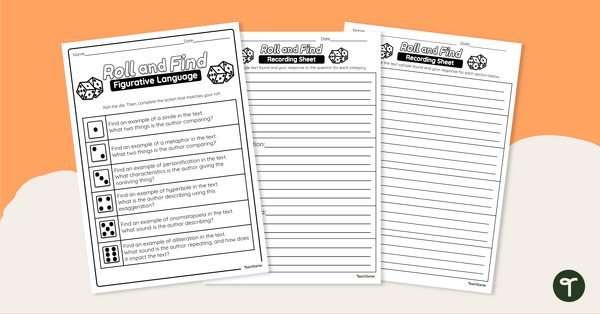
Roll and Find – Figurative Language Worksheet
Explore, identify and interpret figurative language with this engaging roll and find activity.
- Plus Plan
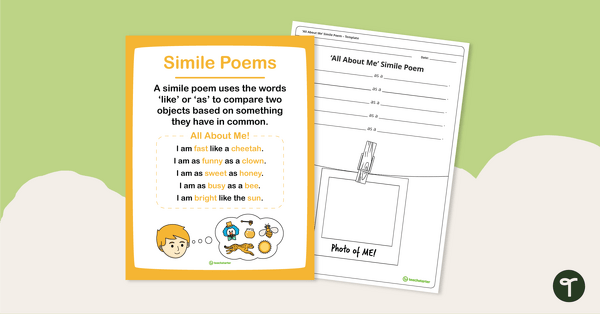
All About Me! Simile Poem Poster and Worksheet
Get to know your students and explore poetry at the same time with this simile poem scaffolding template.
- Plus Plan
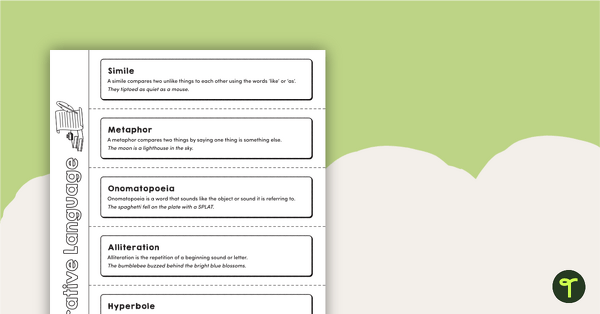
Figurative Language Flip Book
Practice identify examples of figurative language with this flip book template for kids.
- Plus Plan
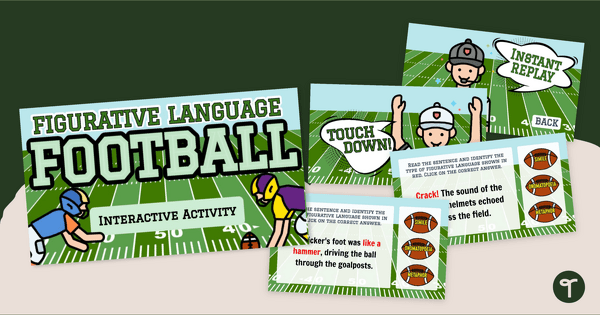
Figurative Language Football Interactive Activity
Have a Figurative Language bowl review with this self-checking Google interactive activity.
- Plus Plan
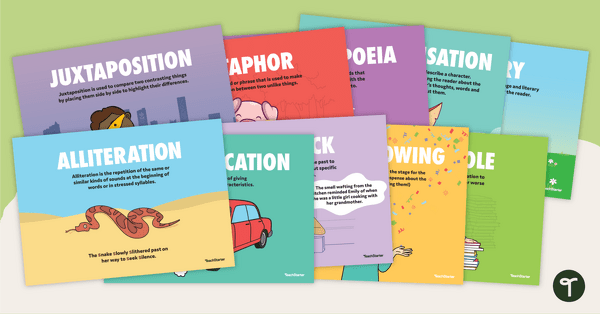
Literary Devices Posters
Explore the various literary devices used by authors with the set of colorful classroom posters.
- Plus Plan
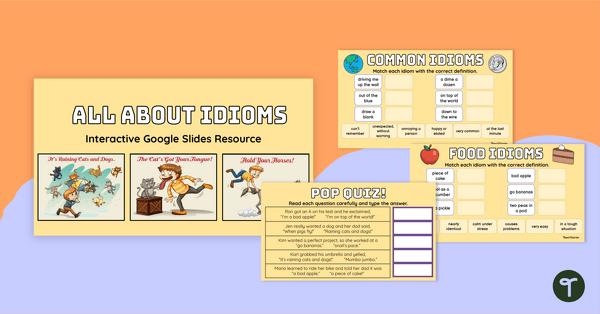
Google Slides Interactive - Idioms Activity
Build vocabulary and have fun with an interactive Idioms activity.
- Plus Plan
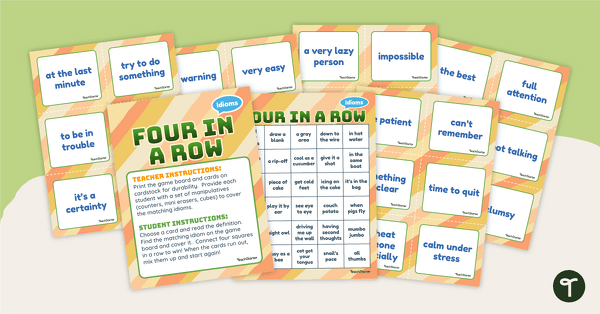
Idioms Four in a Row Game
Practice identifying the meaning of common idioms with an exciting game of Four-in-a-Row!
- Plus Plan
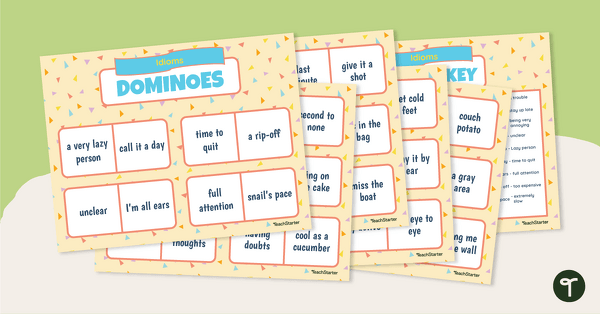
Idioms Dominoes
Build vocabulary and have fun with idiom games.
- Plus Plan
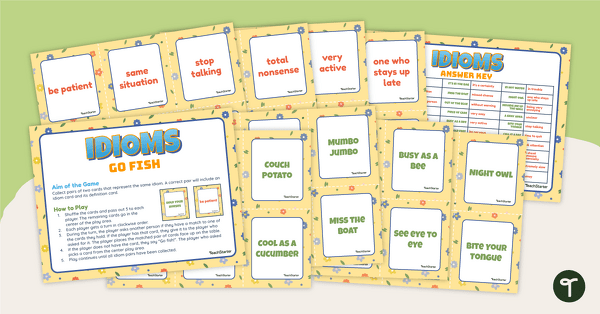
Idioms Go Fish Card Game
Understand the meaning of common idioms with a classroom game of Idioms-Go Fish!
- Plus Plan
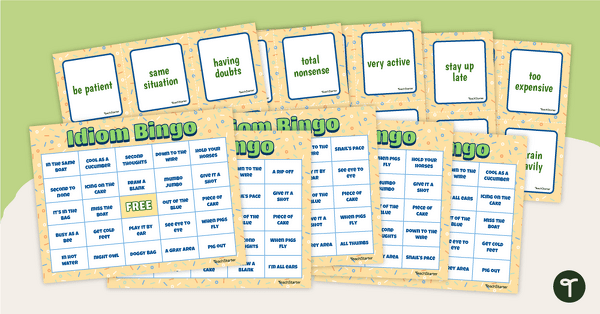
Idioms Bingo Game
Build vocabulary and have fun with a classroom game of Idiom Bingo.
- Plus Plan
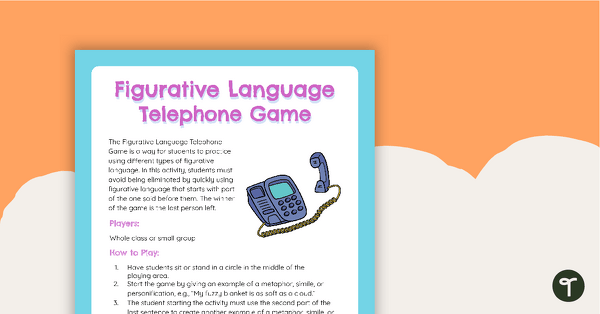
Figurative Language Telephone Game
Play this figurative language game with a group to practice recognizing and inventing metaphors, similes, and personification.
- Plus Plan
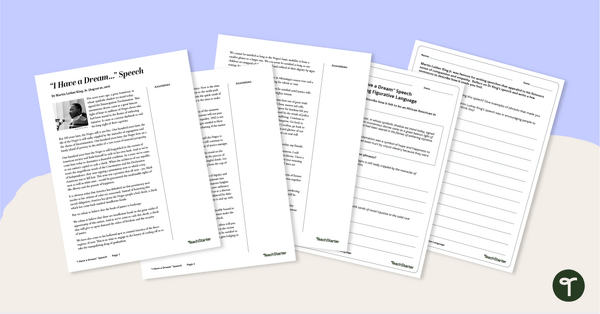
I Have a Dream - Speech Analysis Activity
Review MLK's "I Have a Dream" speech text and explore the metaphors he used to convey his message through the accompanying questions.
- Plus Plan
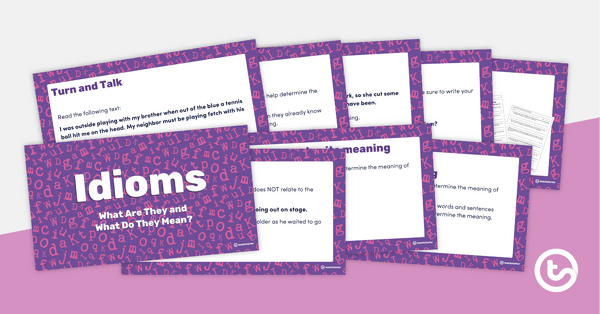
Idioms: What Are They and What Do They Mean? PowerPoint
An editable PowerPoint presentation to use when teaching idioms.
- Plus Plan
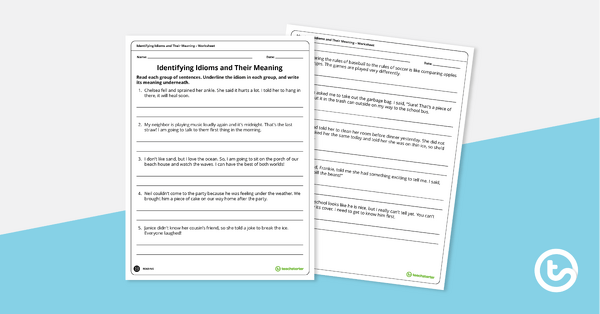
Identifying Idioms and Their Meanings - Worksheet
A worksheet to practice identifying idioms and their meaning.
- Plus Plan
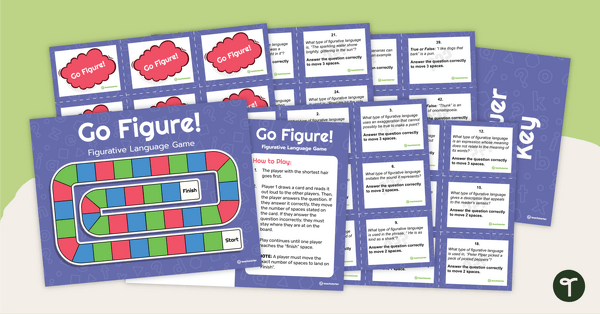
Go Figure! - Figurative Language Game
Practice working with different types of figurative language with this hands-on board game.
- Plus Plan
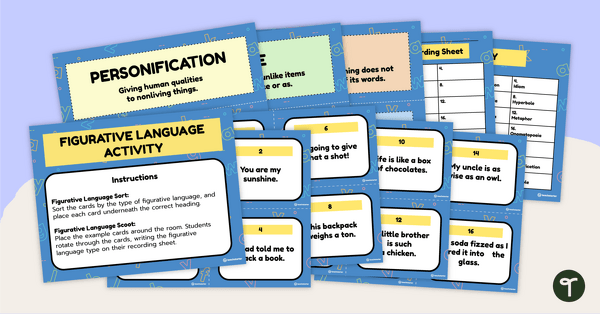
Figurative Language Sorting Activity
Explore figurative language in context with this set of 28 sorting cards.
- Plus Plan
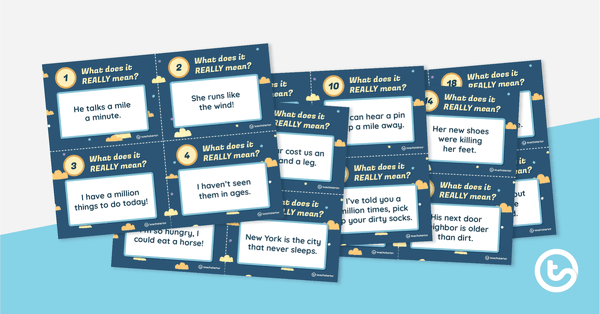
What Does It Really Mean? - Hyperbole Task Cards
Identify and interpret hyperboles used in sentences.
- Plus Plan
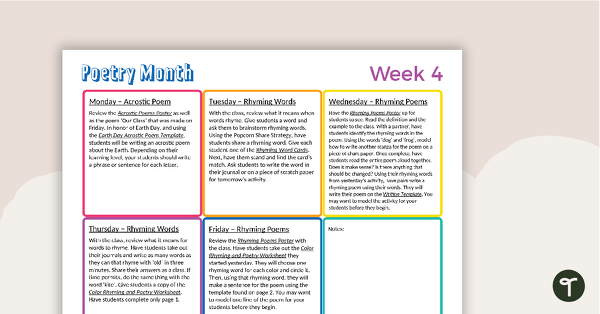
Primary Weekly Poetry Guide - Weeks 4 and 5
Use this weekly poetry guide to celebrate National Poetry Month in your primary classroom.
- Plus Plan
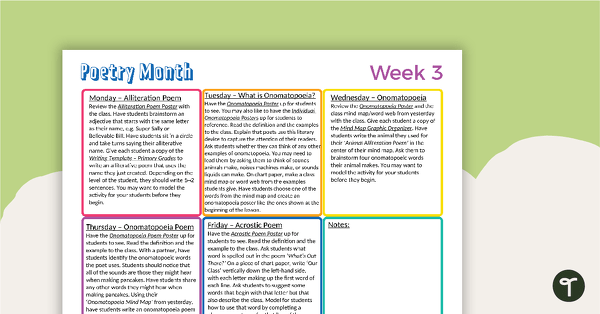
Primary Weekly Poetry Guide - Week 3
Use this weekly poetry guide to celebrate National Poetry Month in your primary classroom.
- Plus Plan
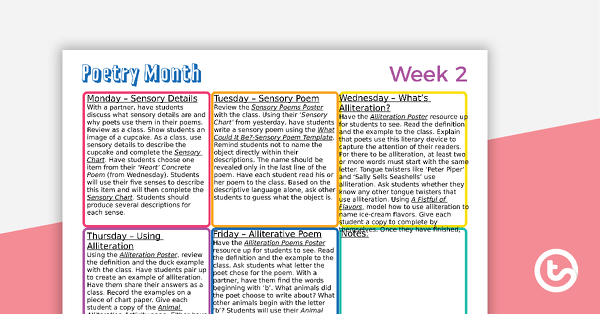
Primary Weekly Poetry Guide - Week 2
Use this weekly poetry guide to celebrate National Poetry Month in your primary classroom.